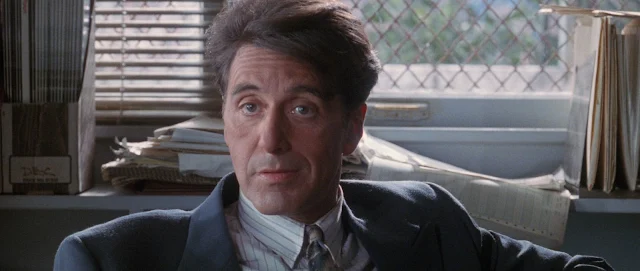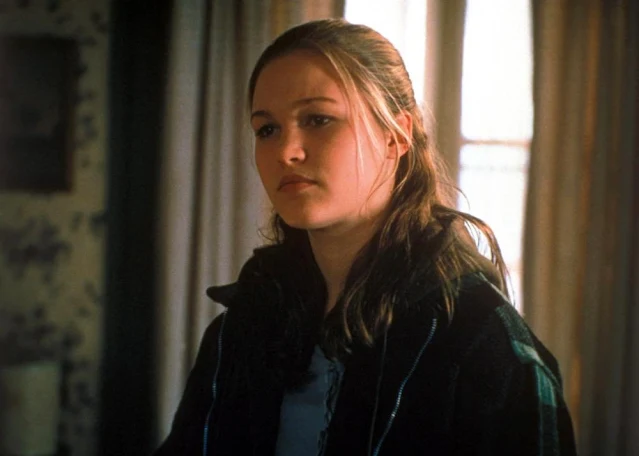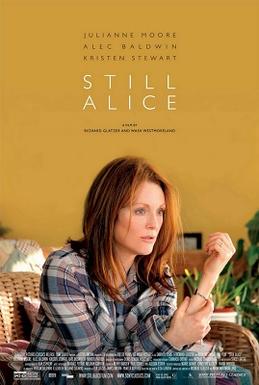 |
| Alec Baldwin in Miami Blues |
Cast: Alec Baldwin, Jennifer Jason Leigh, Fred Ward, Charles Napier, Nora Dunn, José Pérez, Obba Babatundé, Shirley Stoler. Screenplay: George Armitage, based on a novel by Charles Willeford. Cinematography: Tak Fujimoto. Production design: Maher Ahmad. Film editing: Craig McKay. Music: Gary Chang.
Miami Blues is one of those movies that just miss. Alec Baldwin's ex-con comes to Miami because it seems like a good place to start over, which he does with some deft larceny (and some incidental manslaughter) at the airport. He checks into a hotel and asks the bellhop to procure him a woman, who turns out to be Jennifer Jason Leigh's sunny, naïve hooker. Meanwhile, he captures the attention of Fred Ward's scruffy cop, and the three of them begin a playful but sometimes brutal interaction. The movie has all the elements: a cast working at top form, a story with some amusing reversals of expectation, a gallery of quirky supporting characters, and a colorful milieu. The three leads are all cheerful caricatures drawn from crime fiction, but reality overlaps the caricature and the tone of the movie goes sour, turning it darker and heavier than it really wants to be.














